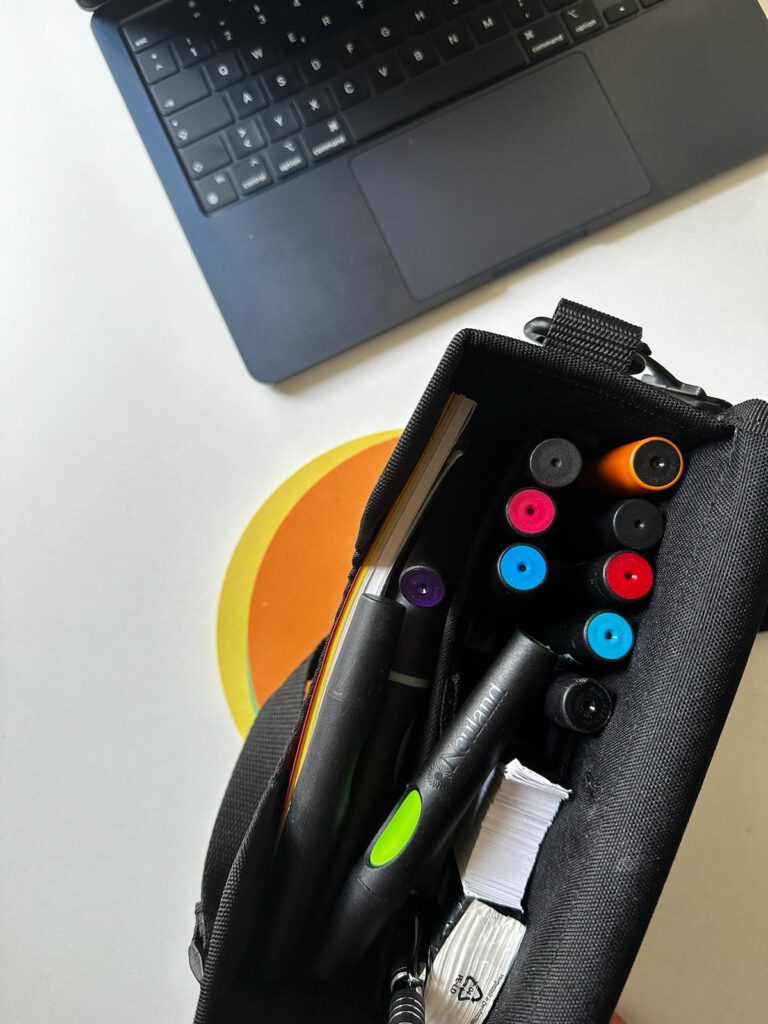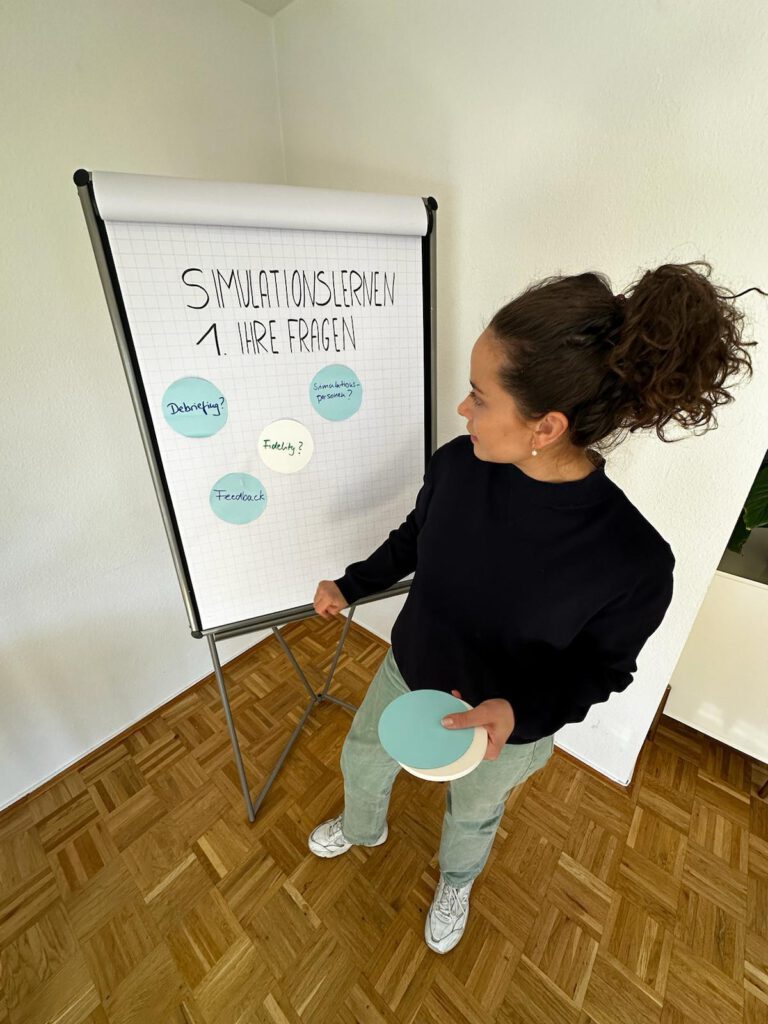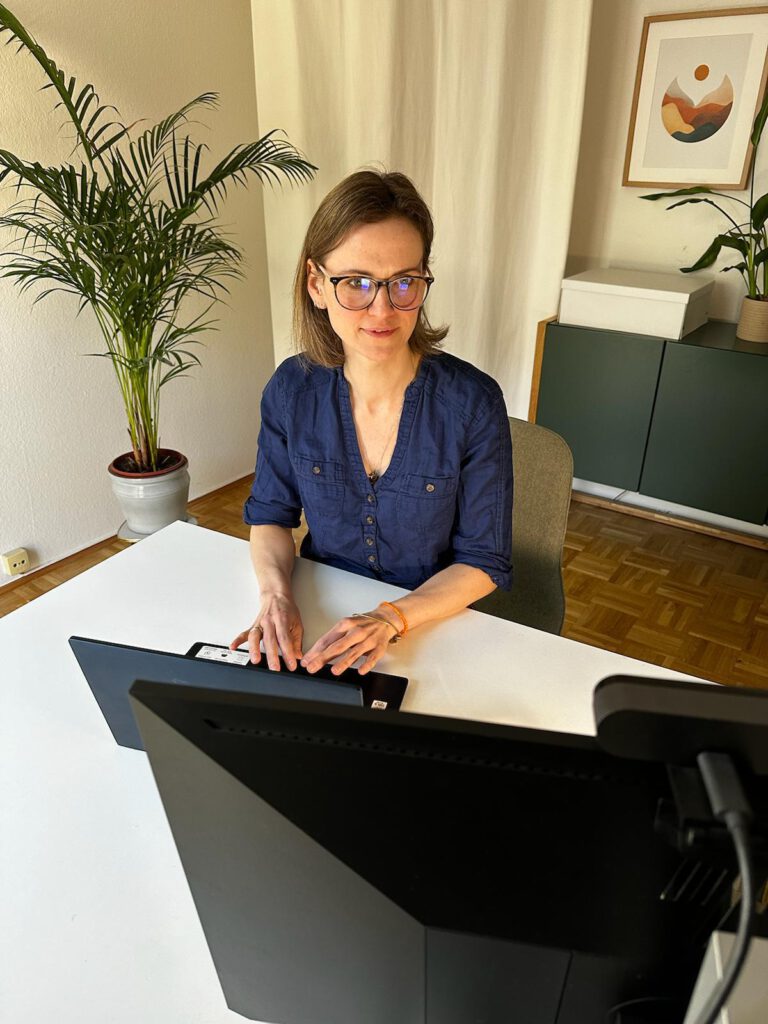Offers
Our program currently consists of 9 modules, each comprising 8 lessons. Six of these lessons are conducted live online, while the remaining 2 are completed independently through self-study. The self-study assignments are designed for reflection and deepening of the learning material. Upon completion of modules 1-6, participants receive the certificate "Basic Qualification in Simulation-based Learning (Instructor)."
Modules 7, 8, and 9 can be taken as advanced modules.
We place special emphasis on providing you with a qualification of the highest standard. Therefore, we align our program with international standards for educators in simulation-based learning. The modules are based on the Healthcare Simulation Standards of Best Practice.® (HSSOBP) of the International Nursing Association for Clinical Simulation and Learning (INACSL), the standards of SSH (The Society for Simulation in Healthcare), as well as the ASPE Standards of Best Practice (Association of Standardized Patient Educators).
In many countries, simulation-based learning is already an established part of education, training, and continuing professional development. To meet this standard, it is essential to offer a qualification program at an international level.
Our goal is to prepare you as an instructor to teach effectively in simulated learning environments and to provide you with the necessary skills and knowledge to work with simulation modalities and methods. We take into account individual needs and resources. Let simulation-based learning become a positive experience for your learners; we are happy to support you in this!
Basisqualifikation Simulationslernen (Instruktor:in)
Modul 1
The participants can:
- recognize legal, ethical, and regulatory principles and apply them to simulation.
- maintain a physically and psychologically safe environment.
- recognize principles of diversity, equality, and inclusion.
- describe and reflect on their own role as an instructor in a simulation.
Modul 2
The participants can:
- differentiate between various simulation modalities.
- recognize the role of simulation in educational systems and in enhancing safety for individuals.
- distinguish between feedback and debriefing.
- describe a method of debriefing.
- describe a method of feedback.
Modul3
The participants can:
- apply educational theories to simulation activities.
- assess and describe realism for different simulations.
- develop a simulation scenario.
- describe and assess the logistics for a simulation.
- ein Simulationsszenario durchführen (Prebriefing, Briefing, Simulation, Debriefing und Feedback).
Modul 4
The participants can:
- describe the possible applications of simulated participants (SP).
- explain and justify the use of SP.
- develop a role script tailored to the learning occasion.
- assess the psychological safety of the SP.
- apply the ASPE (Association of Standardized Patient Educators) standards in working with SP.
Modul 5
The participants can:
- design a role-playing training for SP and implement it according to the role script.
- apply different methods in role-play training.
- support SP in role development and provide feedback on their performance.
- train the entry into and exit from a role with SP.
Modul 6
The participants can:
- guide the SP to provide constructive feedback.
- guide the SP in reflecting on their own performance.
- apply appropriate methods for recruiting SP for teaching and examination purposes.
- standardize training for SP for teaching and examination purposes.
Vertiefungsmodule
Modul 7
The participants can:
- assess the reliability of OSCE exams and identify measures to improve the quality of the examination.
- describe a secure examination environment.
- explain the role of the examiners.
- explain and justify the resource management for an OSCE.
- develop a checklist for an OSCE station.
Modul 8
The participants can:
- describe the diversity of identities, backgrounds, and perspectives that can occur in simulated scenarios.
- recognize and reflect on biases and stereotypes.
- integrate diversity aspects into simulation scenarios.
- tecognize conflicts and tensions in diverse groups or situations and develop strategies to address them.
Modul 9
The participants can:
- apply terminologies related to interprofessionalism correctly.
- describe the importance of simulation scenarios in interprofessional collaboration.
- identify learning opportunities that promote interprofessional teams.
- develop interprofessional learning objectives.
- consider and plan the development of an interprofessional scenario.


